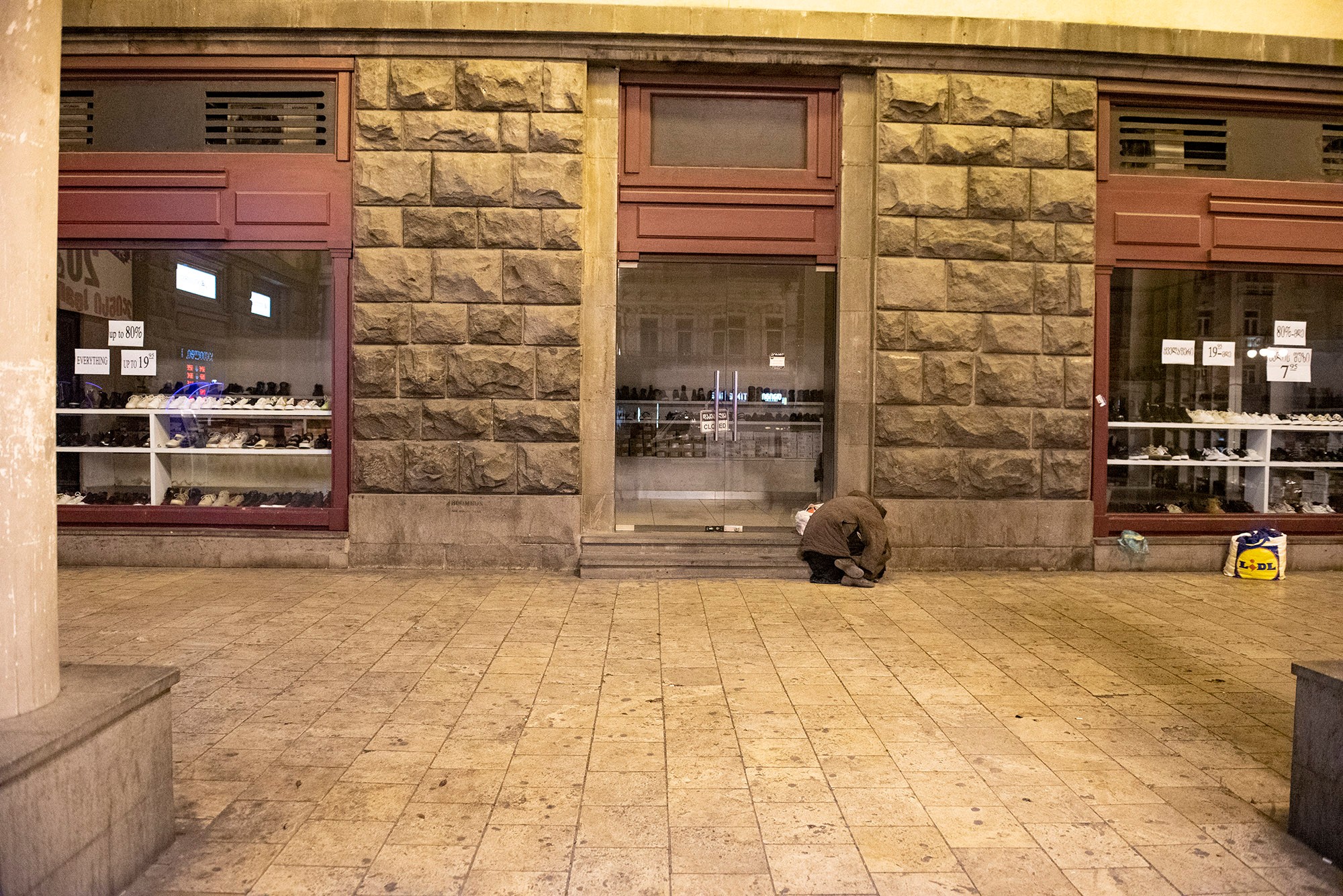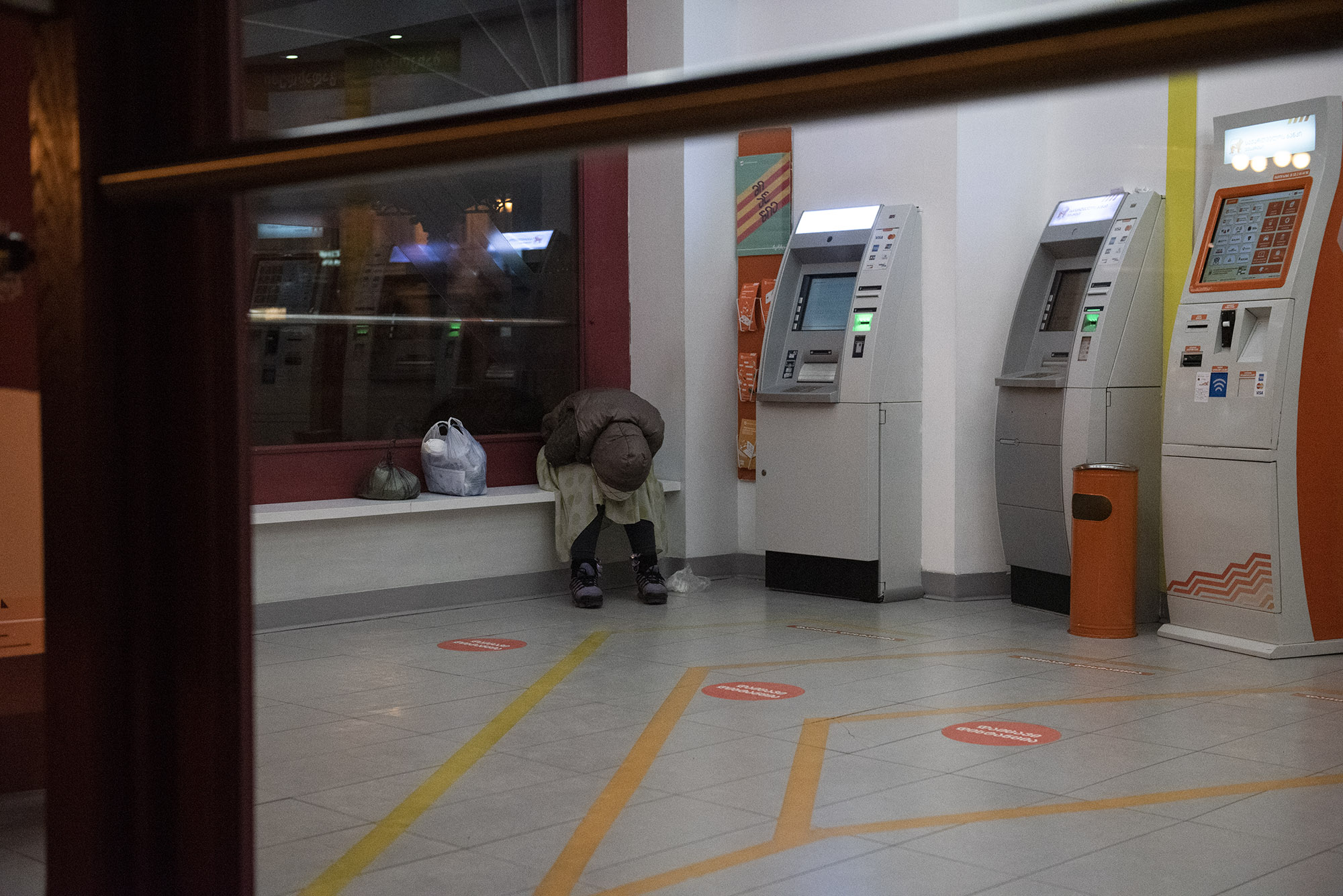
Homeless people in Georgia are at high risk of catching the coronavirus, Georgian Public Defender Nino Lomjaria has warned.
In a statement on Monday, Lomjaria called on the authorities to make efforts to identify homeless people who are unable to comply with restrictions of the state of emergency.
‘Because of having nowhere to live, homeless people are unable to comply with the state of emergency rules, such as the curfew rules, the rules of self-isolation, and recommendations on hygiene or staying home.’
‘Because of this their health and lives are at higher risk.’
[Follow our rolling coverage of the coronavirus crisis in the Caucasus.]
Georgia introduced a nationwide curfew on 30 March, banning people from being on the streets between 21:00–06:00.
Those caught violating the curfew face fines of ₾3,000 ($950) or up to three years in prison for repeat offenders.
It is not clear how the authorities are dealing with homeless people caught outside during curfew hours. The Interior Ministry did not respond to multiple requests for comment on the matter.
[Read on OC Media: In pictures | Tbilisi’s first night under curfew]
‘No data’ on homelessness

There is no official data on the number of homeless people in Georgia. According to the Public Defender, there are no programmes to help homeless people in 19 of Georgia’s municipalities.
A spokesperson for the Tbilisi Mayor’s Office told OC Media that there were currently around 100 people in the city’s municipal shelter, and there was space for 100 more.
They said that the number of people seeking shelter had not significantly increased since the introduction of a curfew. They attributed this to an unwillingness by some to comply with the rules of the shelter, such as a ban on drinking alcohol.
The spokesperson said the Mayor’s Office had not made additional efforts to inform homeless people of the current emergency situation.
The Public Defender’s Office has previously warned that homeless people unable to take care of themselves have been turned away from the Tbilisi municipal shelter and denied access to the medical and social services it provides.
According to their 2019 report on human rights in Georgia, ‘because of their inability to take care of themselves, 22 people were deprived of services in the Lilo Municipal Shelter in 2019.’
Kote Eristavi, a human rights advocate at the Human Rights Education and Monitoring Centre (EMC) told OC Media that the fact that the Tbilisi shelter was half empty should not be attributed to homeless people’s lack of discipline.
He said that a lack of access to information and the current ban on public transportation should also be also taken into account, as the Tbilisi Municipal shelter is located in Didi Lilo, on the outskirts of the city.
[Read on OC Media: In pictures | Tbilisi’s night bus — a shelter on wheels]
A 2017 report from EMC found that between November 2015 and February 2017, around 7,000 people applied to the Tbilisi Mayor’s Office asking for accommodation.
Over the course of 15 months, a special commission set up to oversee the applications considered 732 and declared 335 people homeless. Only 47 applications were approved for housing, EMC reported.









